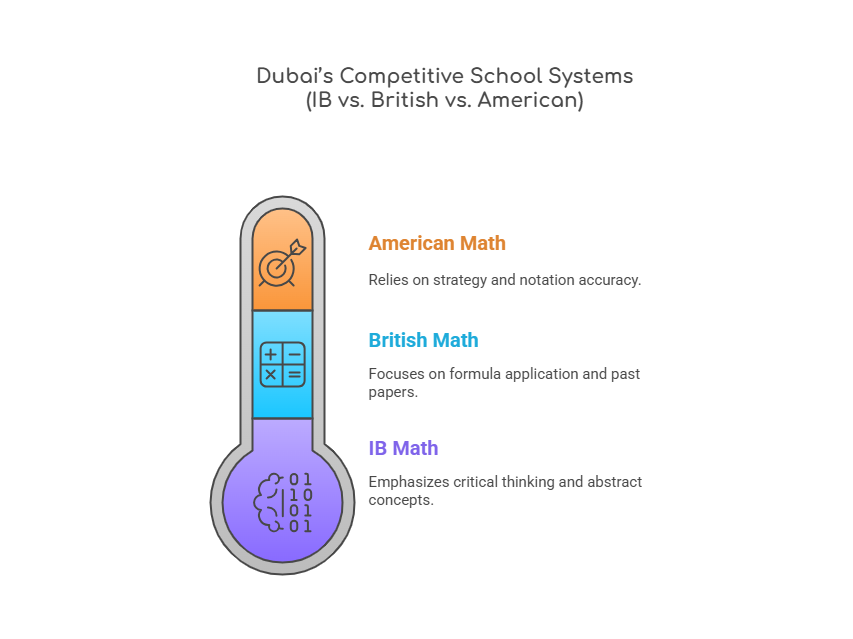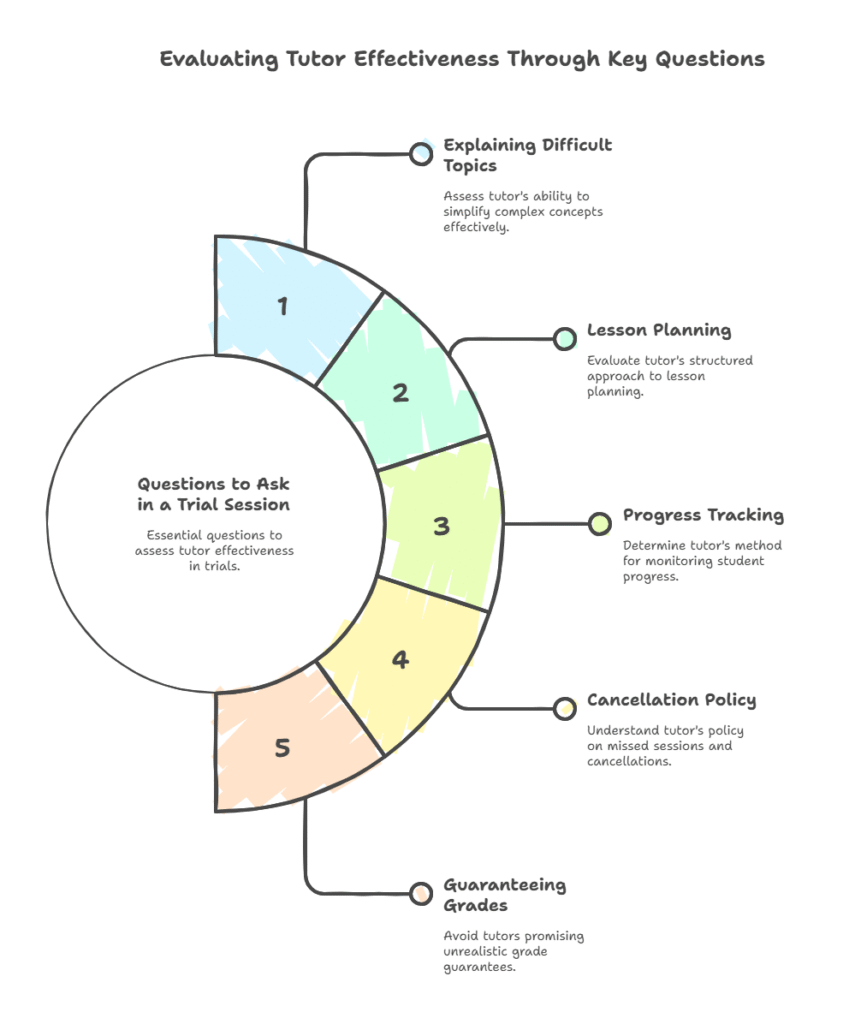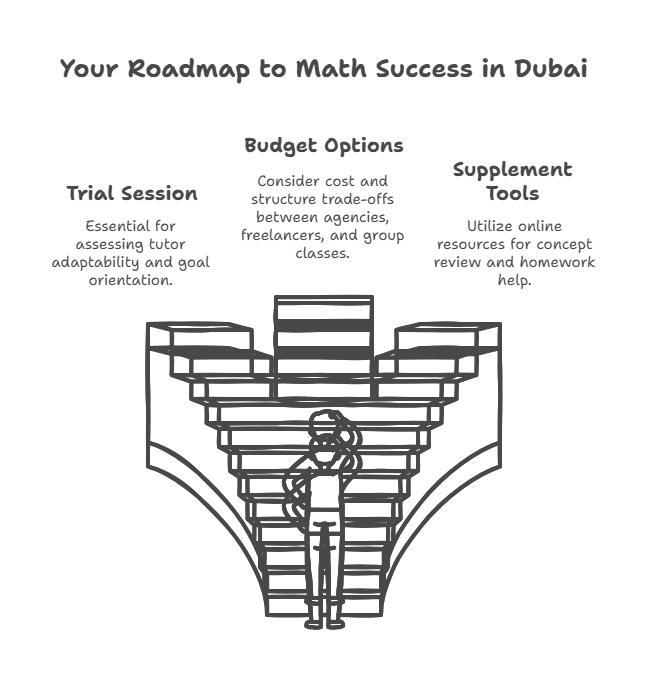
Did you know 65% of Dubai students hire a private tutor at least once during their school years? If equations, algebra, or calculus are giving your child nightmares, the right math tutor can make all the difference. But with so many options—from freelance tutors to elite academies—how do you pick the best math tutor in Dubai?
In this guide, we’ll break down:
✔ Top-rated math tutors for IB, A-Level, and American curriculums
✔ What to look for in a great tutor (hint: it’s not just qualifications!)
✔ Price comparisons—so you don’t overpay
✔ Red flags to avoid when hiring
Let’s find your child’s perfect math match!
1. Why Hiring a Math Tutor in Dubai Matters
Let’s be real—math in Dubai’s schools isn’t just about passing exams. It’s a high-stakes game where IB, British, and American curriculums demand different skills, and falling behind can cost your child university spots or scholarships. I’ve seen straight-A students crumble under the pressure of Dubai’s rigorous systems, and that’s where a great math tutor becomes a game-changer.

1. Dubai’s Competitive School Systems (IB vs. British vs. American)
Dubai’s education scene is like a global curriculum buffet, but that also means no one-size-fits-all approach works.
- IB (International Baccalaureate):
- Heavy on critical thinking, not just memorization.
- Students struggle with Higher Level Math’s abstract concepts (e.g., matrices, calculus proofs).
- A tutor who’s exam-trained is key—IB markers are notoriously strict.
- British (GCSE/A-Level):
- Formula-heavy, especially for Edexcel vs. Cambridge boards.
- Common pitfalls: misapplying formulas under time pressure.
- Tutors must drill past papers—A-Level grade boundaries are brutal.
- American (SAT/AP):
- SAT Math is tricky, not hard—it’s about strategy.
- AP Calculus BC? Without a tutor, even top students lose points on silly notation errors.
Personal anecdote: A friend’s daughter switched from CBSE to IBDP and failed her first math test—not because she was bad at math, but because she’d never written a “mathematical exploration” report. A tutor rewired her approach in 3 months, and she scored a 6 (out of 7).*
2. How Tutoring Boosts Confidence & Grades (Real Student Examples)
Math anxiety is real. I’ve met kids who cry before tests because they’ve been labeled “bad at math.” A tutor doesn’t just teach—they rebuild confidence.
- Case Study 1:
- Student: Year 11, British curriculum, predicted grade D in GCSE Math.
- Issue: Panicked during exams, left half the paper blank.
- Tutor’s Fix: Timed practice + “chunking” hard questions.
- Result: B grade in 6 months.
- Case Study 2:
- Student: IBDP, struggling with Analysis & Approaches HL.
- Issue: Couldn’t grasp proofs by induction.
- Tutor’s Fix: Used visual coding analogies (e.g., “Think of it like a loop function”).
- Result: Jumped from a 4 to a 6.
The magic? One-on-one attention. Schools move fast; tutors fill gaps before they become chasms.
3. When to Start Tutoring (Before Exams vs. Year-Round)
The biggest myth? “Only weak students need tutors.” Here’s the truth:
- Cramming Last-Minute = Stress City
- Dubai’s top schools finish syllabi early, leaving months for revision.
- A tutor 2 months before mocks can fix weak spots.
- But: Starting Year 10/11 (or Grade 9 for IB) avoids panic.
- Year-Round = Smarter, Not Harder
- 1-2 sessions/week keeps concepts fresh.
- Best for:
- Kids in accelerated programs (e.g., gifted streams).
- Students aiming for 7s in IB or A* in A-Level.
Pro Tip: If your child sighs heavily at homework or says “I’m just bad at math,” that’s the red flag to act. Confidence drops fast—catch it early.
The Bottom Line
In Dubai, math isn’t just a subject—it’s a filter for university tracks, scholarships, and even career paths like engineering or finance. A tutor isn’t a luxury here; it’s damage control (or better yet, a strategic advantage).
Action Step:
▶ If your child’s in IB/A-Level, book a diagnostic session with a tutor now—even if grades seem okay. Those “small confusions” today are tomorrow’s crises.
▶ For younger kids, focus on foundations. Fractions weak? Algebra shaky? Nip it in the bud.
“But tutors are expensive!” So are repeat exam fees and summer catch-up courses. Think long-term.
2. How to Choose the Right Math Tutor
Let me tell you a hard truth: The most qualified tutor on paper can be the worst fit for your child. I learned this the hard way when I hired a tutor with a PhD from Imperial College—only to find out my 15-year-old nephew fell asleep during sessions because the tutor lectured like a university professor.
Here’s how to avoid my mistakes:
Qualifications vs. Teaching Style—What Matters More?
Qualifications (like degrees, certifications, or years of experience) look impressive, but teaching style is what actually makes the difference.
- When Qualifications Matter:
- For IB/A-Level/SAT prep, you do need someone who knows exam rubrics inside out.
- If your child is preparing for Olympiads, a tutor with competition experience is key.
- When Teaching Style Trumps All:
- Struggling students need patience, not prestige.
- Younger kids (Grades 1-8) respond better to tutors who use games, real-life examples, or tech tools than strict academics.
Pro Tip: Ask for a short video of the tutor explaining a concept (like solving a quadratic equation). If they can’t make it simple, they’re not the one.*

The #1 Mistake Parents Make When Hiring (And How to Avoid It)
Mistake: Choosing a tutor based on price or reputation alone.
What Happens:
- The cheapest tutor may rush through lessons or reuse outdated materials.
- The “top-rated” tutor might be fully booked, leaving your child with their inexperienced assistant.
How to Avoid It:
- Demand a Trial Session (most tutors offer 30 mins free).
- Sit in (discreetly) for the first 10 minutes to observe their vibe.
- Ask for current student references—not just cherry-picked success stories.
Questions to Ask in a Trial Session
Don’t waste time with vague small talk. Hit them with these:
✔ “How would you explain [difficult topic] to a student who doesn’t get it?”
(Good sign: Uses analogies or drawings. Bad sign: Repeats the textbook definition.)
✔ “Can I see a sample lesson plan?”
(If they wing it, your child’s progress will too.)
✔ “How do you track progress?”
(Good tutors give monthly feedback; bad ones just say “Yeah, they’re doing fine.”)
✔ “What’s your policy if my child misses a session?”
(Hidden fees for cancellations? Make-up classes? Know upfront.)
Red Flag Alert: If a tutor guarantees an A, run. Real learning isn’t a magic trick.
3. Math Tutoring Costs in Dubai (2025 Prices)
Let’s talk money—because tutoring in Dubai can cost as much as a car payment if you’re not careful. Here’s the latest breakdown:
Hourly Rates: Freelancers vs. Agencies
| Type | Price Range (AED/hr) | Pros | Cons |
| Freelance Tutors | 120–350 | Cheaper, flexible scheduling | Quality varies wildly |
| Tutoring Agencies | 250–600 | Vetted tutors, structured plans | Upsell packages aggressively |
| Star Tutors | 400–800+ | Elite exam specialists | Often overkill for average needs |
Real-Life Example:
- A freelance tutor (150 AED/hr) helped a student go from a D to B in GCSE Math.
- An agency tutor (350 AED/hr) got another into Imperial College—but only after 8 months of 3x/week sessions.
Are Group Classes Worth the Savings?
Small groups (3-5 students): 80–150 AED/hr
- ✅ Good for motivated students who learn from peers.
- ❌ Bad for easily distracted kids or those with big knowledge gaps.
Case Study: A Dubai mom saved 1,200 AED/month with group classes—but her son’s grade dropped because the tutor couldn’t address his specific weak points.
Hidden Fees to Watch Out For
- “Registration Fees” (Some agencies charge 500 AED upfront—negotiate this away.)
- “Resource Fees” (Photocopies shouldn’t cost 50 AED/session.)
- “Commitment Contracts” (Locking you into 3+ months with no trial is shady.)
Pro Hack: Ask for bulk discounts (e.g., 10 sessions for the price of 8). Many tutors agree if paid upfront.
Key Takeaway
- Teaching style > qualifications for most students.
- Always do a trial session—don’t commit blind.
- Group classes save money but may not fix individual struggles.
- Hidden fees add up—read contracts carefully.
Next Up: Online vs. In-Person Math Tutors: Pros & Cons – because screen fatigue is real.
What’s your tutoring budget? Any surprise fees you’ve faced? Share below!
4. Online vs. In-Person Math Tutors: Pros & Cons
The pandemic made online tutoring mainstream, but is it really as good as sitting across from a tutor? After testing both for years (and witnessing my niece’s “I hate Zoom!” meltdowns), here’s the real breakdown.
Pro Tip: For online sessions, dual monitors help—one for the tutor, one for notes.
When Face-to-Face Learning Works Better
Online tutoring fails when:
- Your child needs handwriting feedback (e.g., showing step-by-step calculus work).
- They’re easily distracted (sneaky TikTok scrolling is real).
- The internet is unreliable (yes, even in Dubai).
Real Story: A Dubai mom switched to in-person when her son’s online tutor didn’t notice he was Googling answers mid-session!
5. Free Resources to Supplement Tutoring
Even the best tutor can’t cover everything. These free tools saved my students thousands of dirhams:
Best Math Apps for Dubai Students
- Khan Academy
- Why? Full IB/GCSE/A-Level courses with Arabic subtitles.
- Secret Hack: Use the “Test Prep” section for SAT/ACT cramming.
- Photomath
- Why? Scans handwritten problems and explains solutions.
- Warning: Kids might abuse it—use for learning, not cheating!
- Brilliant
- Why? Teaches logic behind formulas (perfect for IB Analysis).
- Downside: Only free for 7 days.
- DeltaMath (for Teachers)
- Why? Generates infinite practice problems with auto-grading.
- How to Access: Ask your school to sign up.
YouTube Channels & Websites for Extra Practice
- IB Math: Revision Village (past papers with video solutions).
- GCSE/A-Level: Maths Genie (predicts exam topics yearly).
- Fun Learning: Numberphile (for kids who think math is boring).
Pro Move: Combine apps with tutoring—e.g., do Khan Academy lessons before sessions so the tutor can focus on weak spots.
Final Thoughts
- Online tutoring wins for flexibility and niche subjects.
- In-person is king for distracted learners or complex exams.
- Free resources fill gaps—use them strategically.

6. Your Roadmap to Math Success in Dubai
Let’s be honest—finding the perfect math tutor in Dubai can feel like solving a quadratic equation blindfolded. But after years of trial and error (and watching students go from “I hate math” to “I aced my mock!”), here’s the no-BS summary:
- Trials Are Non-Negotiable
That “free 30-minute session” isn’t a courtesy—it’s your cheat sheet. Watch for:- Does the tutor adapt explanations when your child looks confused?
- Do they ask about goals (or just dive into a generic lesson)?
- Budget Wisely
- Agencies = structure but higher costs.
- Freelancers = affordable but vet thoroughly.
- Group classes = only if your kid thrives in crowds.
- Supplement Smartly
- Use Khan Academy for concept reviews.
- Try Photomath for instant homework help (but no cheating!).
One Last Story
A parent once told us, *”We hired a 500 AED/hr ‘genius’ tutor who used terms my son didn’t understand. Switched to a 150 AED tutor who explained things with football analogies—his grade jumped in weeks.”*
Moral: Fancy credentials don’t teach kids. Great teachers do.
Your Move
- Book a trial with at least 2 tutors from Discover Learning Tutors.
- Combine tutoring with free apps for max impact.
- Watch progress—if grades or confidence don’t budge in 6 weeks, switch.
Stuck? Contact us on WhatsApp with your child’s curriculum and struggle—we’ll help troubleshoot!
FAQs
1. How do I know which math tutor is right for my child?
Look for experience with your child’s curriculum, trial sessions, teaching style, and student references. Discover Learning Tutors helps you match with the best tutor.
2. Can online tutoring be as effective as in-person?
Yes, for motivated students, online tutoring offers flexibility and niche expertise. Hands-on topics may benefit more from in-person guidance.
3. When should my child start tutoring?
Start at the first sign of struggle or before exams. Year-round tutoring is ideal for consistent progress.
4. Are group classes effective for math improvement?
Small groups can help motivated students but may not address individual gaps. Personalized attention is more effective.
5. How much does math tutoring cost in Dubai?
Rates range from 120–800 AED/hr depending on the tutor type and curriculum. Discover Learning Tutors provides transparent pricing.
Also View
- How Problem-Based Learning Transforms Mathematics Education
- Boost Your Math Potential with 1-on-1 Sessions
- Top Academic Tutoring Centres in Dubai: Your Guide to Excellence
- Online Math Tutoring in Dubai – Flexible Learning for Students
- Boost Your Child’s Learning with Peer Tutoring in Dubai | Discover Learning Tutors
